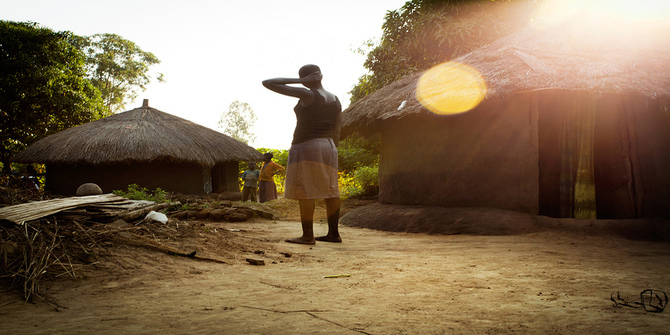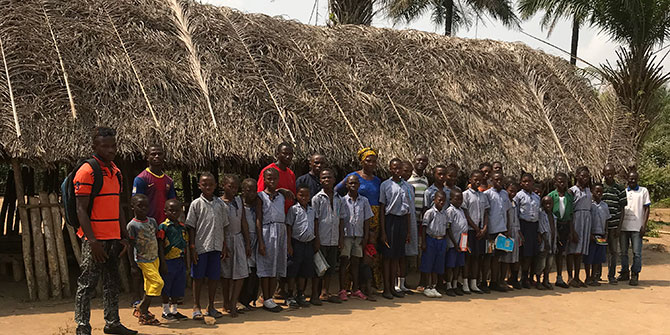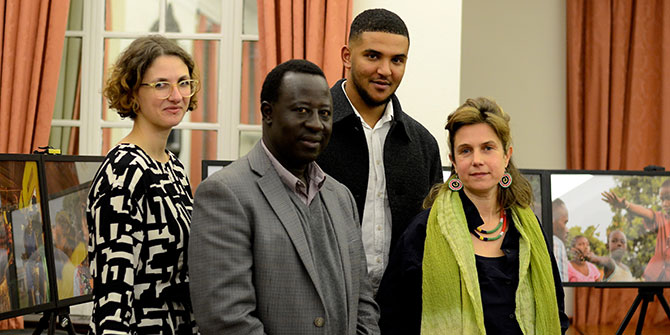Research with Ugandan women and their children, fourteen years after their return from life with the Lord’s Resistance Army, highlights the inter-generational dimensions of war and conflict. Obedience, stoicism and silence enabled their survival, and now shapes their day-to-day lives. Narratives of ‘victimisation’ promoted by humanitarian agencies, alongside advice to ‘forget the past’, while aiming to facilitate social reintegration has ended up perpetuating the returnees’ social isolation.
This blog is the second in a series documenting the realities of returning from life with the Lord’s Resistance Army (LRA). It focuses on one woman and her son to illustrate their day-to-day challenges.
Esther (not her real name) was abducted by the Lord’s Resistance Army (LRA) at the age of thirteen in 1994. She lived with the rebel group for ten years but, fourteen years after her return, remains socially isolated. Softly spoken, Esther told us that her parents died within a year of each other when she was a small child. At the time of abduction, she was living with her brother and grandparents. As with so many young women, she was ‘given’ to a commander soon after her abduction. She was one of two ’wives’, and went on to give birth to a son.
Sadly, Esther’s son was killed in a battle with the Ugandan army when he was four years old and, a year or so later, her husband was killed in a similar battle. She was living in South Sudan at the time, and it was not long before she became the wife to another commander – this time, an escort to Joseph Kony. Although she was one of three wives, she felt loved by her second husband and went on to give birth to her son, Okello.
Food and water were often in scarce supply, and there is little doubt that violence and fear dominated day to day life. On one occasion, for example, her husband beat her for not grinding enough sorghum for the soldiers in his battalion. On another occasion, the LRA were moving to a new base and she was carrying a heavy load on her head when Okello, strapped to her back, started to cry. She stepped to one side to comfort him. Furious at the delay this might cause, and the possibility that the Ugandan army might hear her son’s cries, soldiers from the battalion beat her until blood dripped down the side of her face. It was clear from Esther’s account that survival required complete obedience and stoicism. Tears, almost always, led to further beatings and, for others, sometimes death.
However, silence could be dangerous. Speaking in a matter of fact tone, she said: ‘Sometimes when you sit in a group, they think you are planning to escape and you are just beaten.’ Escape also felt like an impossibility. We were told that ‘… if anyone [successfully] escaped, they would try and kill their family back home … so you see, it made me think that it is better to stay and die alone.’
After spending ten years with the LRA, Esther was eventually captured by the Ugandan army and taken to a reception centre with her two year old son. Her grandparents had died while she had been in the bush, but her maternal uncle appeared willing to provide her with a ‘home’. Initially, he was welcoming, but as soon as his family had consumed the beans and maize she had been given by staff at the reception centre, and as soon as the mattresses had been appropriated by his relatives, it became apparent that she was anything but welcome. Reflecting on these events, she said, ‘I thought it would be better to start a relationship with a new man to get away from it all.’
The strategy appeared to work. She became involved with another man and, over a period of twelve years, had five children with him. She is, however, one of three wives and her husband has a total of eleven children. Resources are stretched. As Okello grew and developed, accusations that he had brought cen, a kind of malevolent spiritual force or vengeful ghost (which is perceived as socially polluting and potentially dangerous), back from the bush increased, and he was accused of behaving with a ‘bush mentality’. His cousins became increasingly vocal and regularly made comments like: ‘… your father died in the bush and you will die like your father … our uncle is wasting time taking care of you. Now you have grown, we will not let you help anybody in this home.’ By all accounts, they are worried that he might stake a claim for land to cultivate.
Okello, carefully following advice from his mother, tried his best to ignore his cousins’ hostility and provocative statements. He gradually retreated from social life in the homestead, with his mother commenting: ‘I started to see Okello as an orphan because most of the time he was isolated, and lacked life.’ Tensions reached a tipping point when Esther came back from the market to find her son distraught. His cousins had threatened him by saying that ‘they would go to school and convince the older children to tie him up and throw him in the river so that he died … all because he was born in the bush.’
The following day, Okello left for his paternal aunts’ home. They lived in Apar, some distance from where his mother lived but, somewhat unusually, had offered to let him grow up on the homestead when Esther returned from the LRA. He was hopeful that the offer remained, and that they would welcome him into their home, not least because their parents and four brothers had all been abducted and were presumed dead. Okello anticipated continuing his education in Apar, while also helping to cultivate their land. The reality proved altogether different. School fees were not forthcoming, and today he is made to work long hours in the field for minimal financial return. In common with his maternal uncles and cousins, he is persistently excluded and marginalised for being a child of the bush. With little prospect of permanent access to land, he stoically turned to us and asked: ‘where will my future be?’ His mother whispered in response: ‘I wish I could take this boy back into my womb.’
Sadly, Esther and Okello’s accounts of return are similar to many others that have been narrated by women and children who returned from life with the LRA. While their accounts illustrate how endeavours to remain stoic and silent may have initially helped them survive life in the bush, and life back ‘home’, their relatives and neighbours have neither forgotten nor forgiven the horrors of the past. Rejection and social isolation persist.
These experience raises important questions about the legacies of international assistance. By promoting narratives of victimisation in reception centres – and advising young adults and children to ‘forget the past’ and ‘look to the future’ – humanitarian agencies have done little to foster processes enabling social re-integration. Instead, they have participated in a process that has rendered vulnerable young people invisible.
Photo: Yumbe district, located in northwestern Uganda, 29 August 2017. Credit: EU/ECHO/Edward Echwalu





